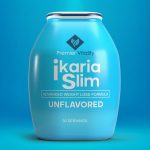Many researchers today are convinced that the aging process and disease occurs when certain substances, known as “free radicals”, are generated by normal oxygen-requiring chemical reactions in our bodies. Free radicals are also generated by exposure to sunlight, ozone, X-rays, tobacco smoke, car exhaust and other environmental pollutants.
Thus, life is a continual process of damage and repair that continues until repairs can no longer be made.
The cumulative effects of free radicals likely underlie the gradual deterioration we all know as aging but may also play a major role in the development of such ailments such a cancer, cardiovascular disease, lung disease and cataracts. Antioxidants are vitamins and minerals that neutralize these volatile and toxic free radicals.
Other substances having antioxidant properties include Vitamin A, Coenzyme Q 10 (30 -50 mg. a day) and a large class of substances called carotenoids (alpha and beta-carotene, lycopene, and hundreds of others).
Vitamin C is one of our first lines of defense and is found naturally in citrus fruit, green peppers, strawberries, raw cabbage and green leafy vegetables. Vitamin C also may block the conversion of nitrates and nitrites into cancer-causing compounds. Low intake of C is associated with an increased cancer risk, especially cancers of the stomach and esophagus. Vitamin C can also help prevent cataracts and retard macular degeneration of the eyes. People with kidney stones should not take over 1000 mg. a day.
Vitamin E is fat-soluble, which means it can be stored with fat in the liver and other tissues. Of its many potential benefits, the best evidence concerns its protective effect against cardiovascular disease. Some of the hundreds of studies conducted worldwide have also suggested that vitamin E in cell membranes may prevent or delay cataracts, alleviate symptoms of Parkinson’s disease, and reduce the risk of cancer (including prostate cancer, the number one cancer in men over age 55). It is found in nuts, seeds, whole grains, wheat germ and vegetable / fish oils so a supplement is better to take since these foods are so fatty. Some studies have suggested that vitanin E may slow down memory loss at a dose of 2000 units per day.
Antioxidants are part of the chemistry of life, not something in a bottle that can miraculously prevent or cure disease.
The best place to find them is in food.
Unlike supplements, foods offer important combinations of nutrients. Vitamins and antioxidants work synergistically, and they probably work best in their own natural environment (food). Also, when you eat certain foods, such as fruits and vegetables, you're not only getting the essential vitamins and minerals, but also many different phytochemicals, some of which are believed to help block the formation of tumors.
Try and take in a minimum of five servings of fruits and vegetables each day – especially yellow, orange and leafy green vegetables, citrus fruits, tomatoes and berries.
Even in those who have a well-balanced diet, I feel there is adequate evidence to consider intake of the following vitamins, minerals and antioxidants. As always, you should involve your personal physician in the decision making process.
- A daily Multivitamin / mineral supplement (such as Centrum®, One-A-Day®, Theragran-M®, or the brands found in health-food stores). In addition, I recommend taking the following …
- Vitamin E: 400-800 IU per day. Look for “mixed tocopherols” rather than plain vitamin E.
- Vitamin C: 250 – 500 mg. twice per day. It only hangs around the blood for 12 hours.
- Selenium: no more than 200 mcg. per day. There is compelling evidence from several clinical trials that selenium lowers the risk of a number of prevalent cancers (such as cancer of the lung, colon, rectum, bladder, esophagus, pancreas, breast, ovary, and cervix). Take with Vit. E but not at the same time as Vit. C which can reduce the absorption of inorganic selenium. Use the “organic” form if possible since Vitamin C does not interfere with it's absorption and they can be taken together.
Optimal health requires some effort to exercise regularly, quit smoking, reduce fat intake and maintain a healthy body weight, in addition to the judicious use of supplements.








